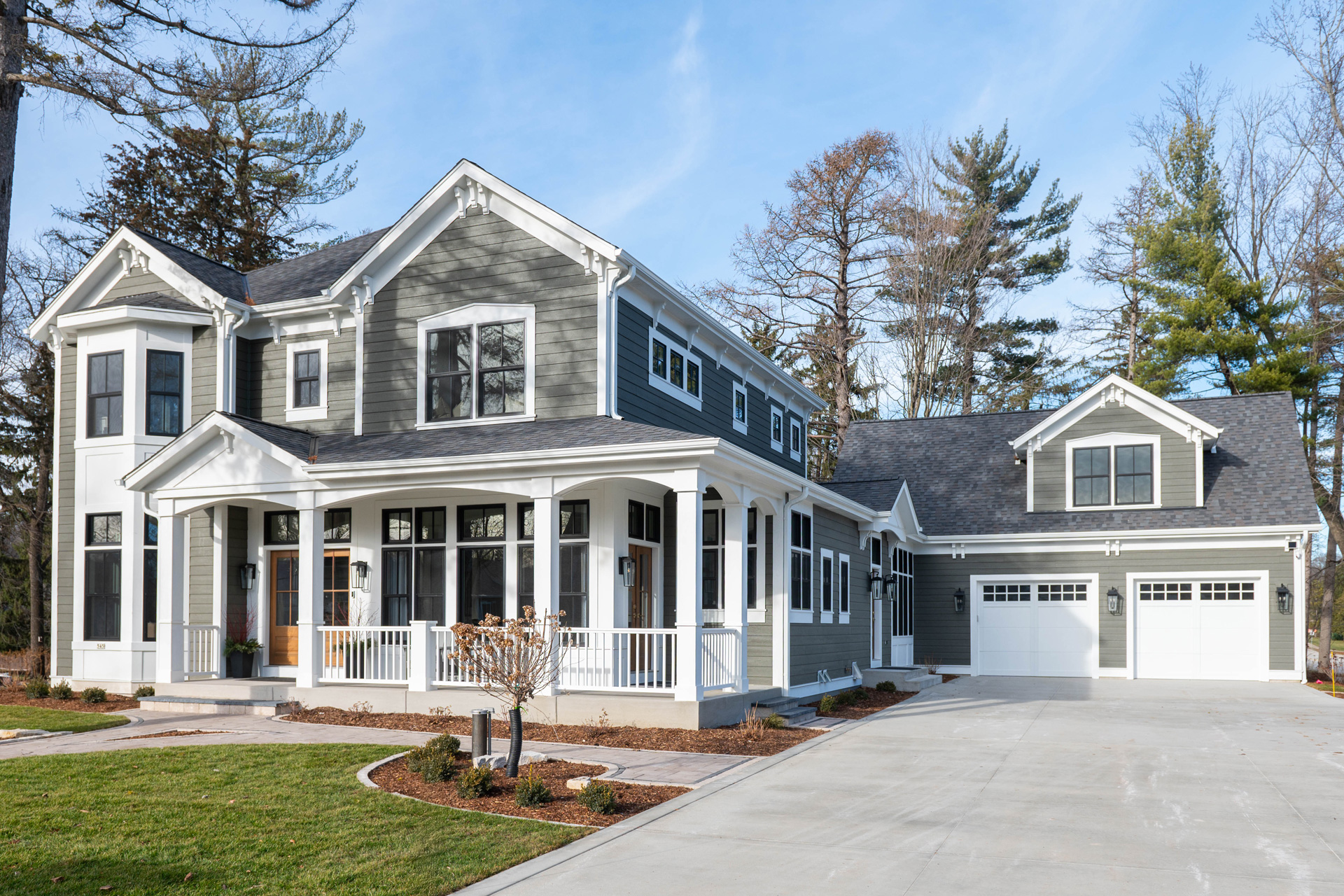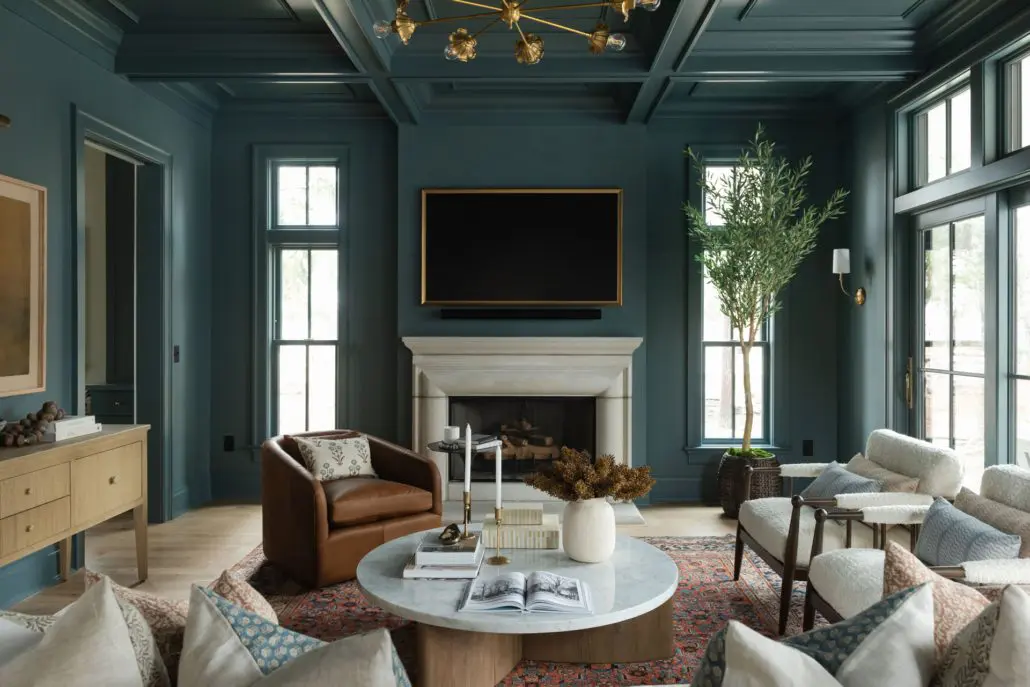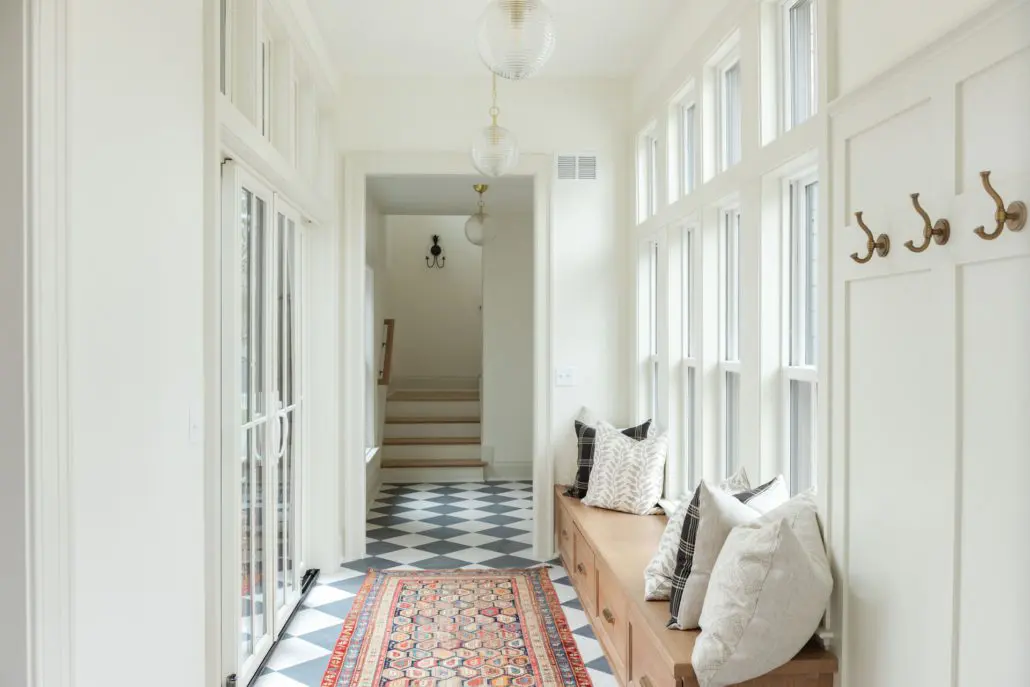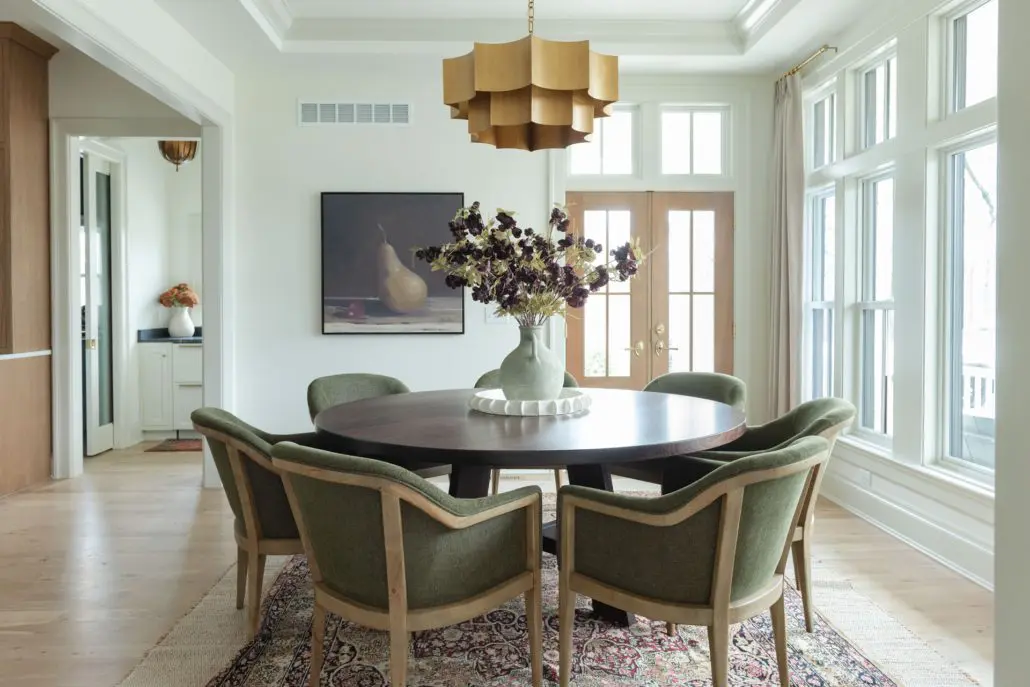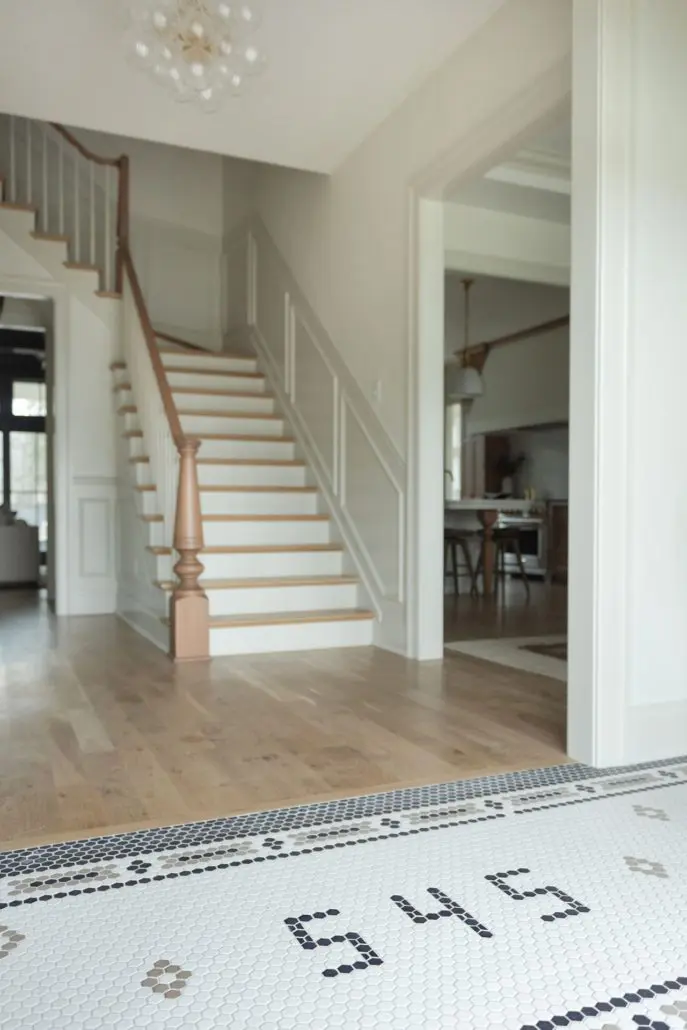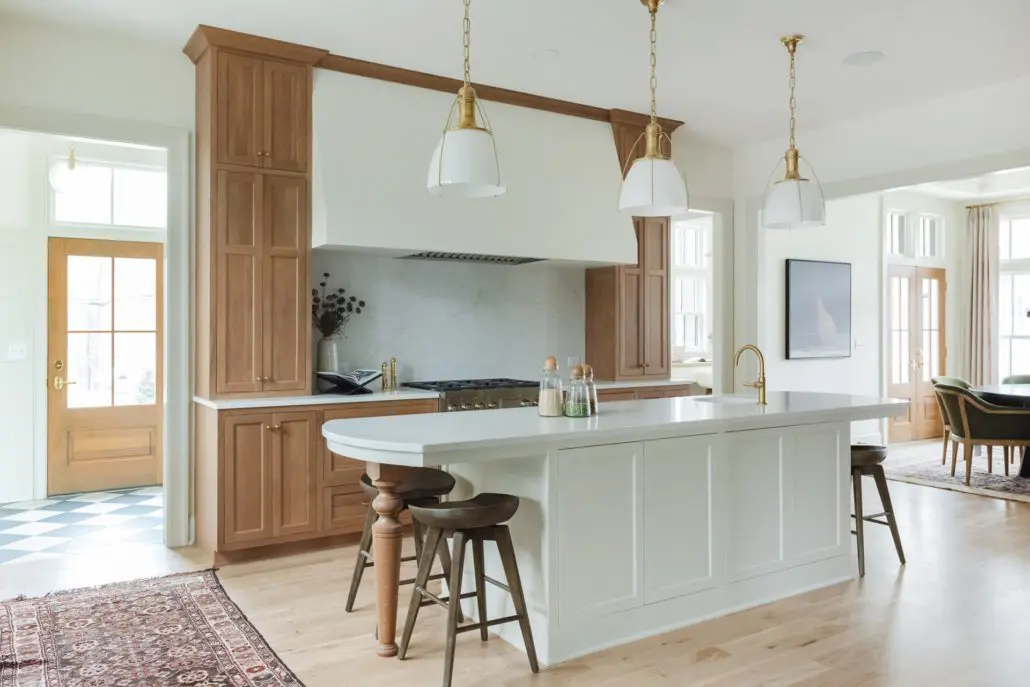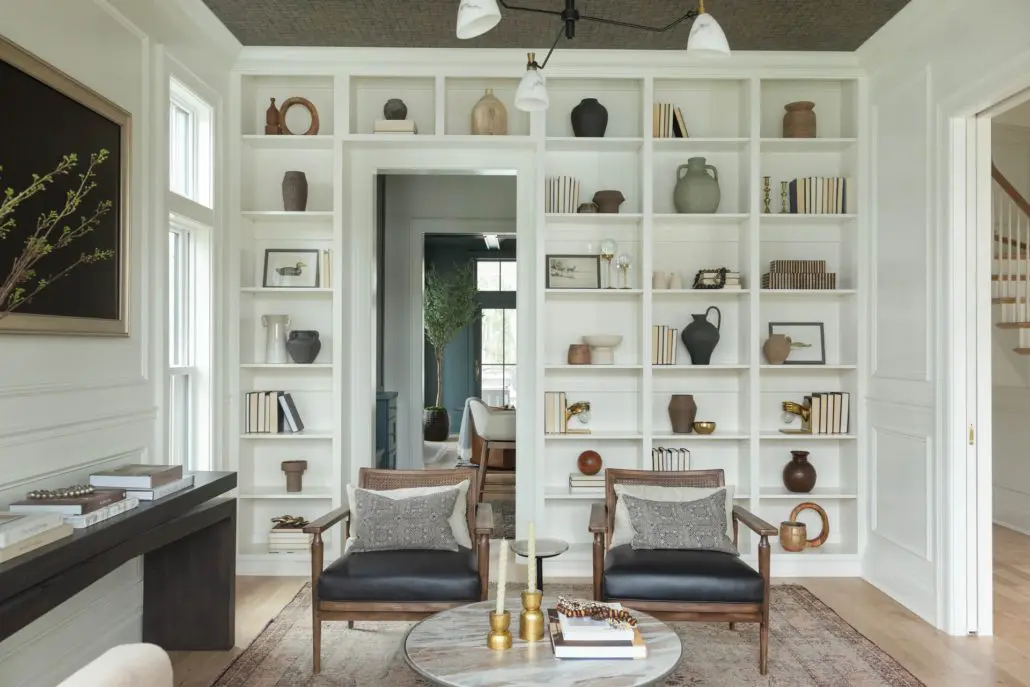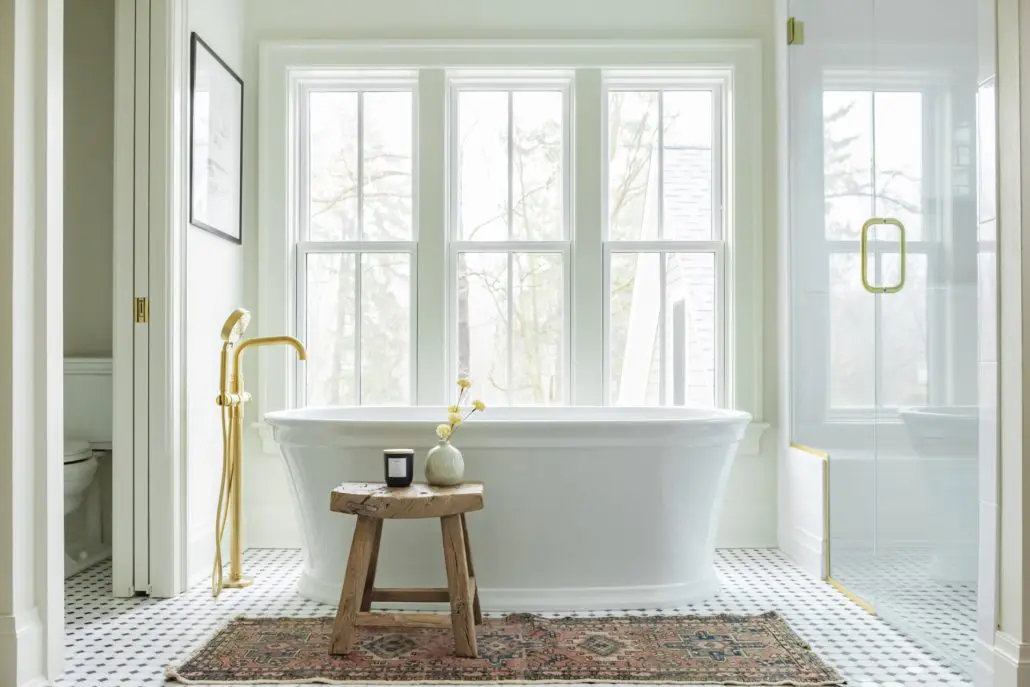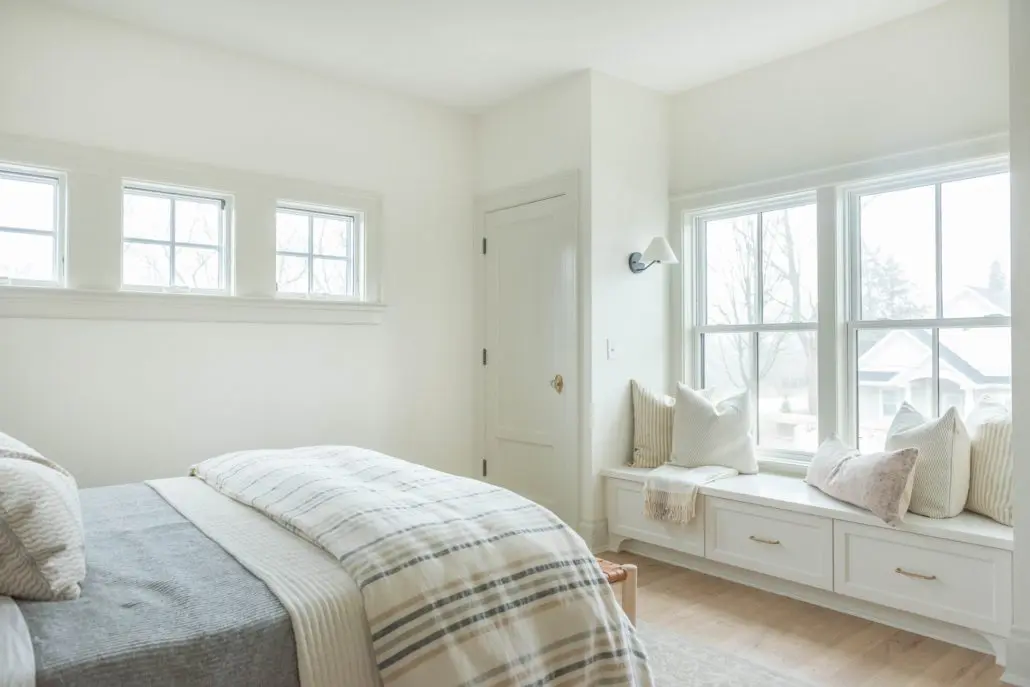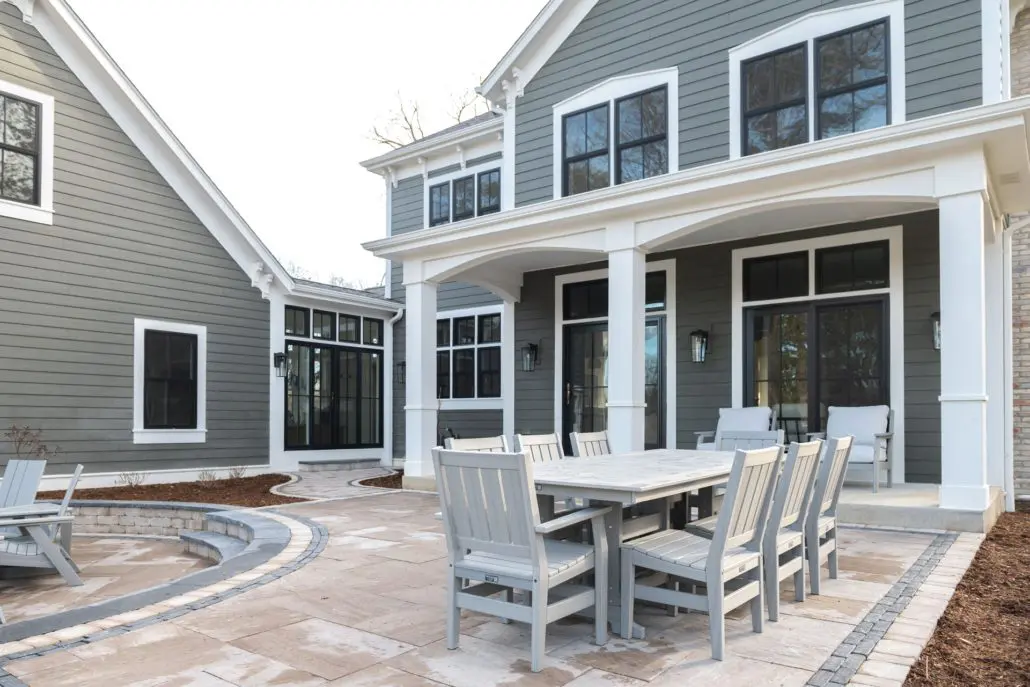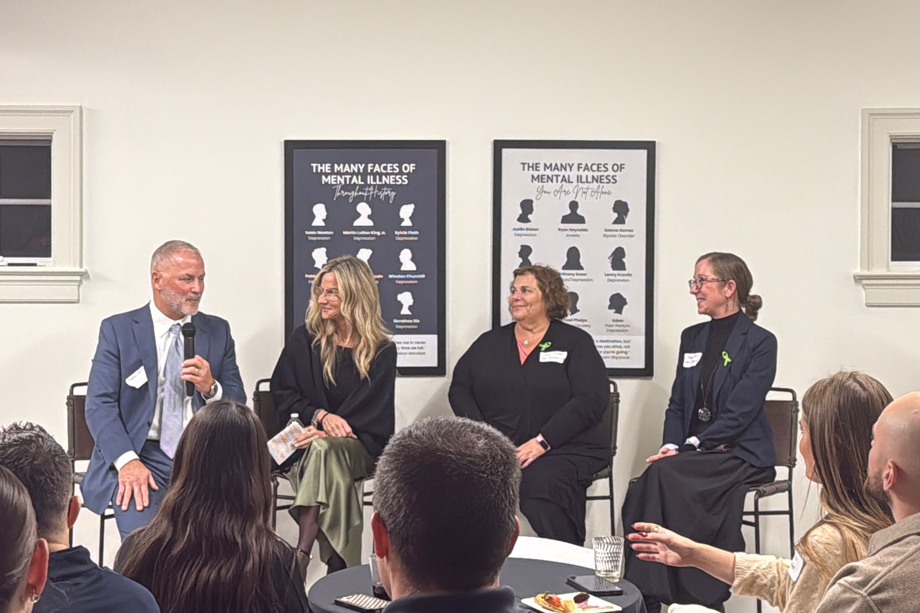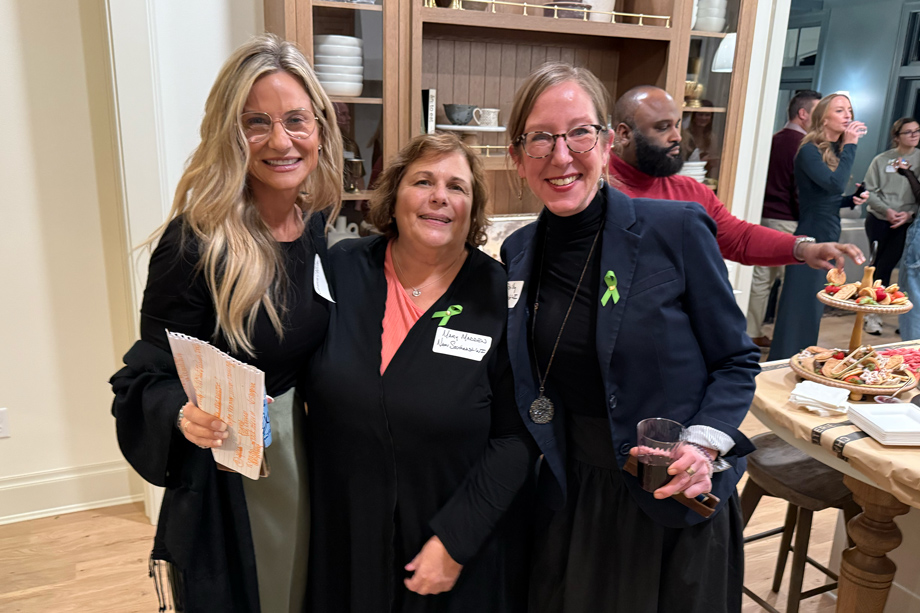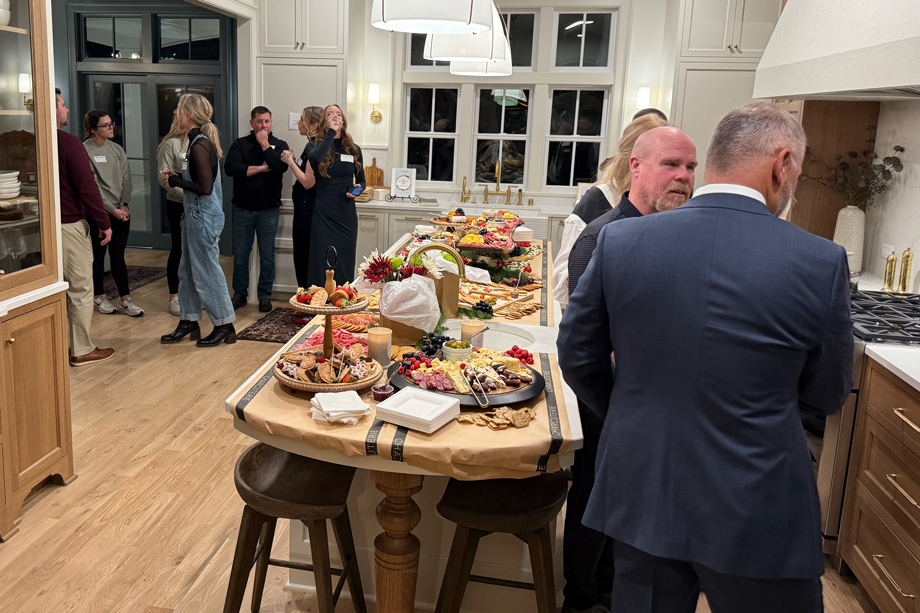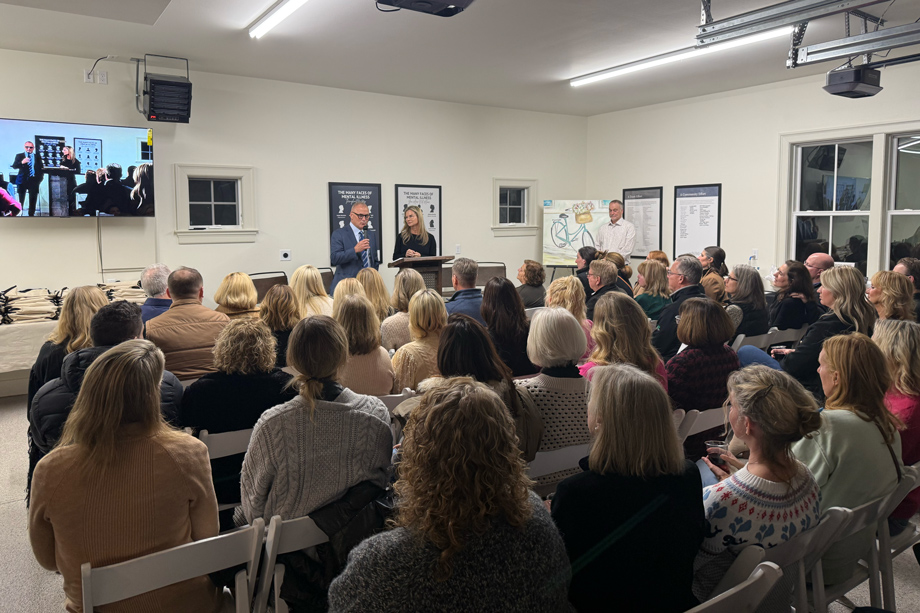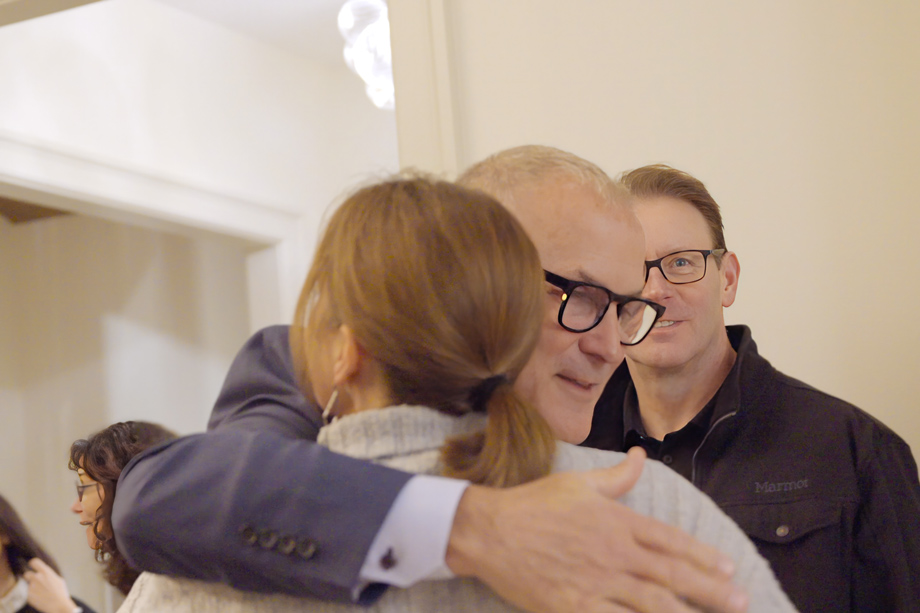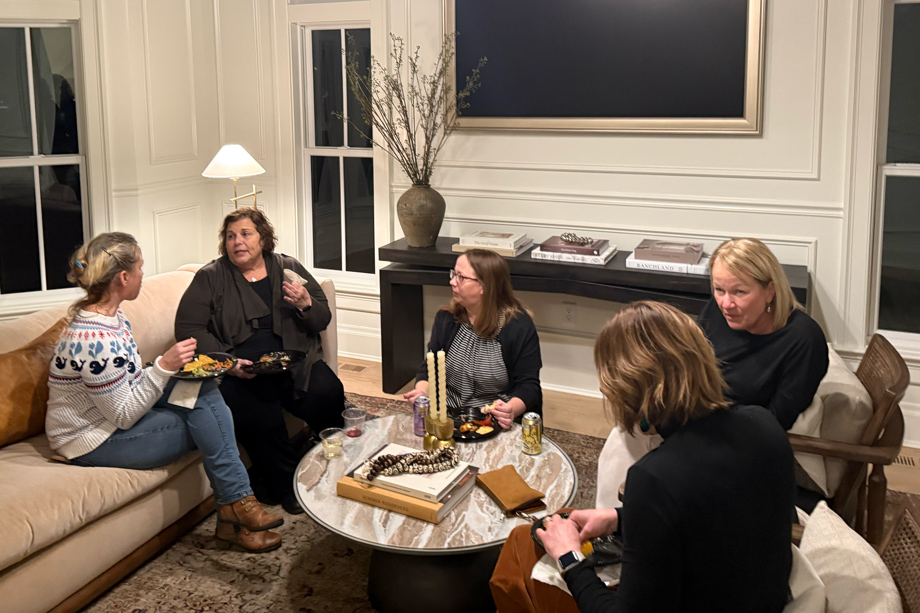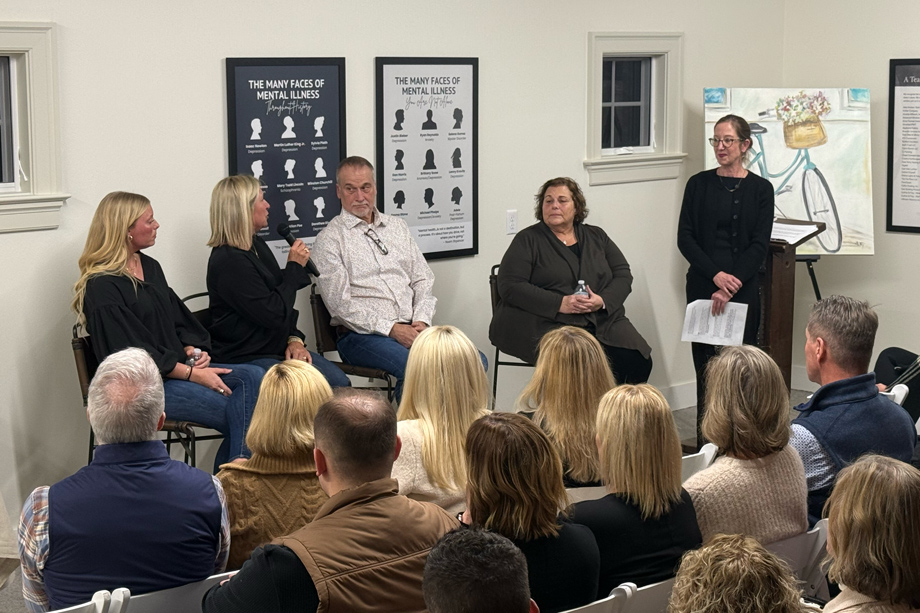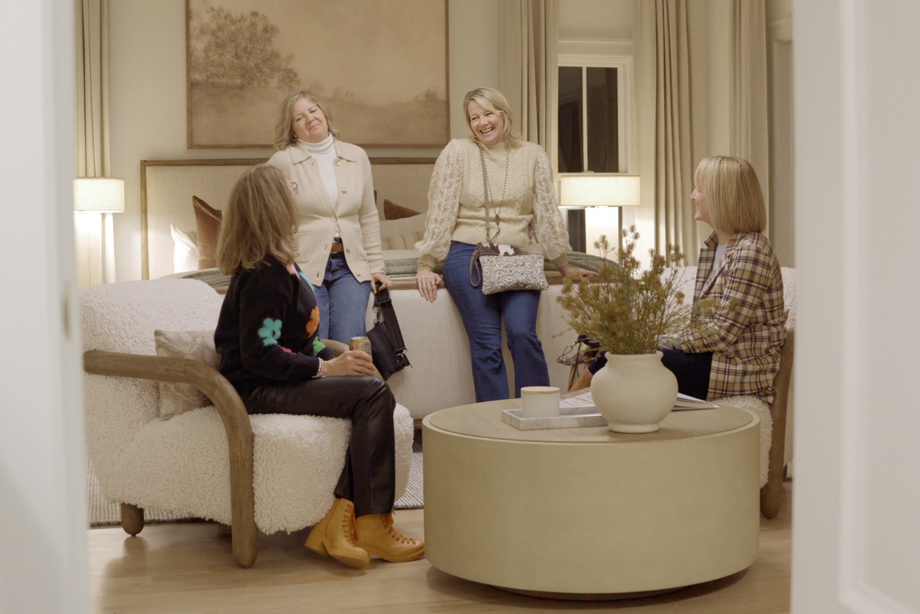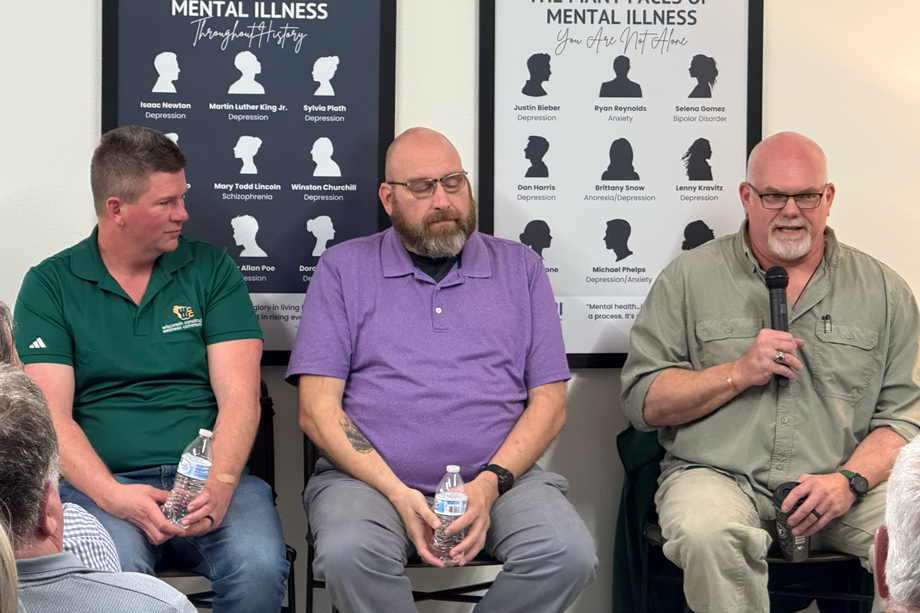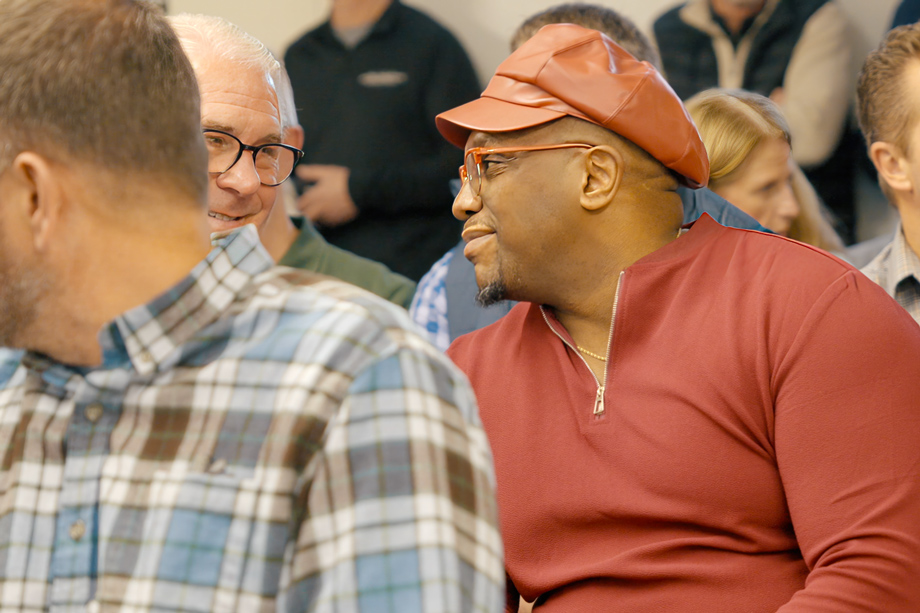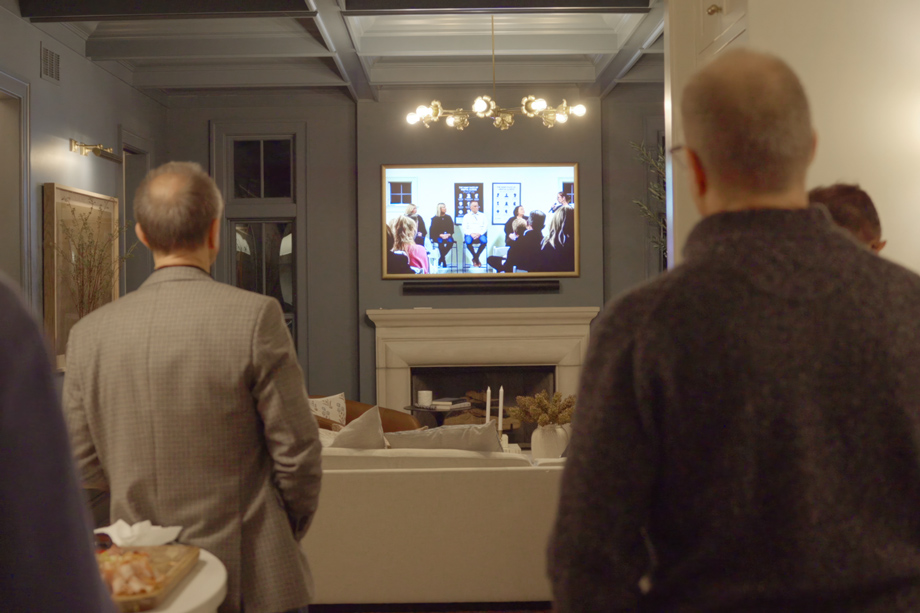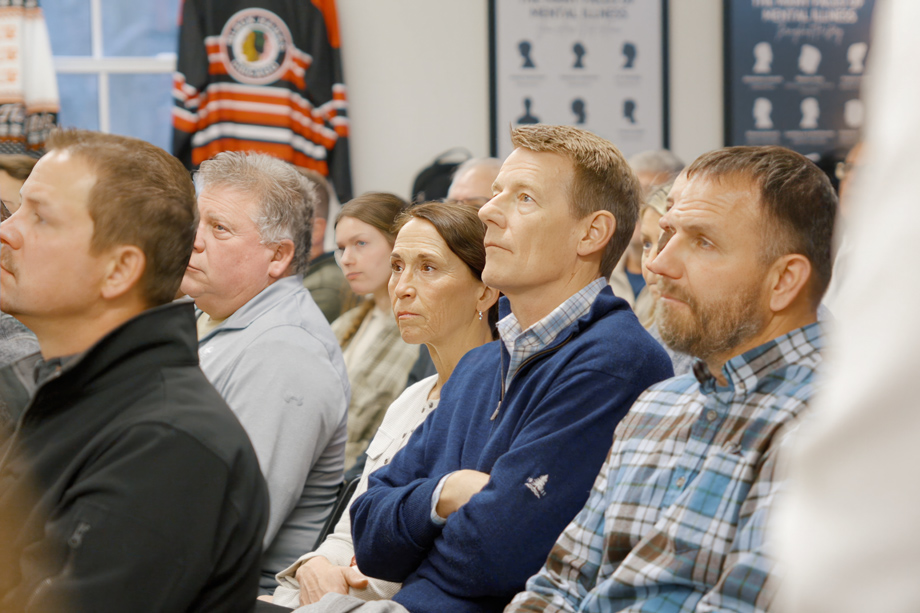A Home Built to Heal
Miller Marriott Construction Co. puts its own spin on a charity home to support the National Alliance on Mental Illness.
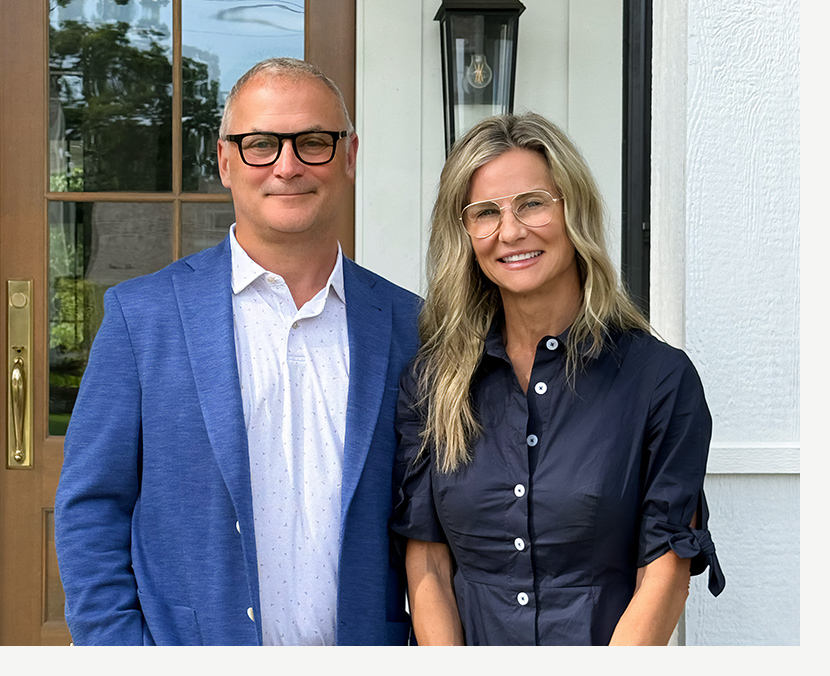
Most homes are built to sell. This one was built to start a conversation.
In 2022, husband-and-wife team Chris and Kirsten Miller of Miller Marriott Construction Co. in Delafield, Wisconsin, wanted to find a way to give back to their community. After going back and forth about how they could make the biggest impact, the answer became obvious: they would build a charity home.
“Finally, we said, ‘Let’s just lean into what we do,’” Kirsten says. “‘We build neighborhoods, we build homes. Let’s just lean into it.’”
Of course, a charity home is not a novel concept. Typically, the term may refer to a residential building owned and operated by a nonprofit or charity to provide housing or support services for individuals or families in need (an organization like Ronald McDonald House may come to mind).
However, Chris, owner of Miller Marriott, and Kirsten, president — client experience, marketing & sales, wanted to put their own spin on the idea: They would donate their construction and design services in addition to land for the home, working with the industry members they had built relationships with over the years to make their vision a reality. Once built, they would then host a series of community events at the house. When all was said and done, the home would be sold just like any other put on the market — but the proceeds would be donated to a worthy cause.
Having been directly impacted by mental illness throughout their entire lives, Chris and Kirsten wanted that cause to be the National Alliance on Mental Illness (NAMI). In the middle of building the home, Kirsten’s brother tragically died by suicide — further underscoring the importance of supporting such an organization.
Throughout the journey of building a charity home dedicated to raising awareness for mental health, Chris and Kirsten were able to transform their personal grief into collective action by sparking conversation, reducing stigma, and creating lasting change within their community.
Meet the Millers
Chris worked construction jobs throughout college and decided to formally enter the industry in 1998 after a bad experience building his own home. The company he was working with abruptly left the project, leaving Chris to finish the construction himself.
“It was very disjointed and unclear. I felt like there was a better way — bundling design and construction into one solution,” Chris says.
He ended up loving the process of building his home, and from there, he built about one spec home a year, growing slowly until he decided to fully leave his corporate job and establish Miller Marriott in 2004.
Years later, in 2016, Chris met Kirsten when a mutual friend’s kid thought it would be a good idea to set the two up. (Both were single parents then, and all the children attended the same school district.) The rest was history, and the couple married in 2018 — the same year Kirsten decided to join Miller Marriott as well.
“I was also in the corporate world and decided to leave my job and just join him and help wherever I could in the business,” Kirsten says. “I think Chris was always meant to be in construction; It’s a true love for him. This became both of our second full-time careers in a way.”
When the duo decided to work together, their kids — Jake, Sam, Sydney, Mia, and Josephine — joked that it may not be the best idea for a married couple to do so. Fortunately, their doubts were proven wrong.
“We both have different strengths and kind of divide and conquer,” Kirsten says. “I think we’re really good partners that way: He goes in his direction, I go in mine. We’re not necessarily joined at the hip all day long.”
“Kirsten keeps me grounded and real,” Chris adds. “She is very operationally focused, which allows me to focus on other aspects of the company.”
Back at home, a Labrador Retriever, a Golden Retriever, and two German Shepherds round out the Miller family.
“The house that we built for ourselves is a good test chamber for everything that we do in the building world. Because if it can withstand our five kids and four dogs, it’s really good quality,” Kirsten laughs.
Today, Miller Marriott is a design/build construction and land development company offering custom and semi-custom design/build, architectural, interior design, and whole-home remodeling services throughout Southeast Wisconsin. Its team of 24 employees works on 36 to 40 homes a year and focuses on providing as much value to the community as possible.
“In 20, 40 years, we believe it’s important to love your home as much as you did when you first got it — similar to an old neighborhood that everybody’s still dying to live in because it is truly timeless. It’s got all the charm and has been built in such a way that it’s lasted 100 years. This is the intention with our homes,” Kirsten says.
It’s no surprise then that when choosing the design of their charity home, the couple landed on modern Victorian. But how does one go about coordinating the fundraising for a four-bedroom, three-and-a-half-bathroom, 3,700-square-foot house?
Building the Charity Home
After floating the idea of the charity home to their subcontractors, vendors, and suppliers, Chris and Kirsten received such a positive reaction that they knew they had to get the ball rolling on the project. Following about a year of filling out all of the necessary applications, the Miller Marriott Charitable Foundation was born.
“Several people jokingly said to us, ‘Maybe it was better that you didn’t really know what you were getting into, because you just went ahead and did it before realizing how much work it is,’” Kirsten says. “It’s a ton of work and truly requires support and help for it to be successful. But I can’t think of anything more rewarding.”
Getting their friends in the construction industry to donate labor and materials proved easier, and ultimately, 58 subcontractors and suppliers contributed to the home.
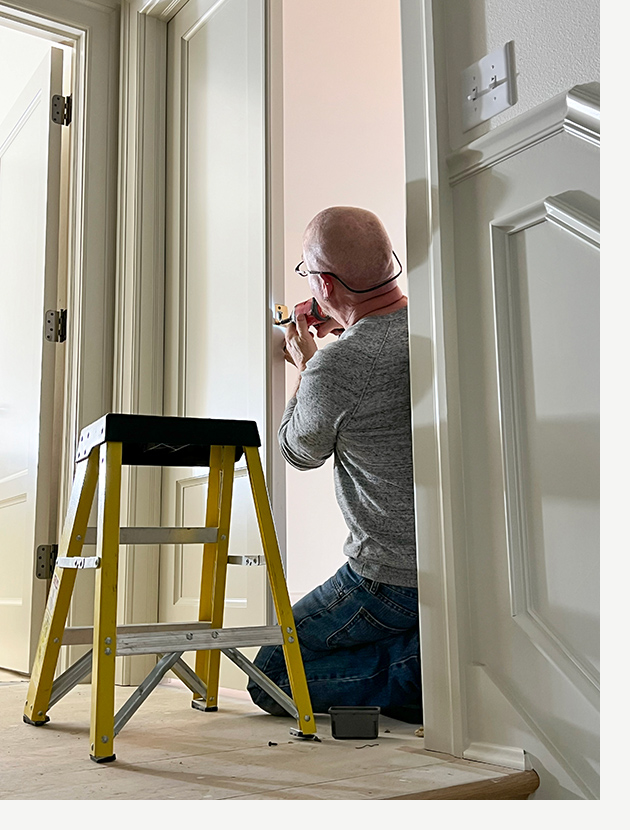 “For Chris and Kirsten, it just shows the commitment they have is infectious,” says Todd Schmidt, Miller Marriott marketing and HR lead. “People have a lot of respect for them as business owners and individuals, so I think that was quite helpful, too.”
“For Chris and Kirsten, it just shows the commitment they have is infectious,” says Todd Schmidt, Miller Marriott marketing and HR lead. “People have a lot of respect for them as business owners and individuals, so I think that was quite helpful, too.”
The rest came down to the company’s design team seeing the design concept through by coordinating donations and materials, as well as collaborating with vendors for a beautiful and cohesive design.
“It was a passion project for everyone, and I believe design evolves to its best levels when you work together,” Kirsten says. “It was such an enjoyable experience working with our contractors and suppliers, leveraging their creative expertise and talents — you can see it in the details.
“You feel something significant when you walk into that house; it feels really special because of the amount of extra care and thoughtfulness that went into it.”
One of Kirsten’s favorite elements of the house is the detailed millwork, which she says the finish carpenters put their whole heart into because they so deeply believed in the cause at hand.
“As everybody said, ‘Yes,’ at the start of our outreach, we felt this incredible responsibility to make sure if they were going to donate labor and materials, it had to truly be for an organization where the impact would be felt,” Kirsten says. “We didn’t want them to wonder if their efforts and hard work actually made a difference; we wanted everyone to know their efforts directly impacted the community. That’s why we chose NAMI.”
NAMI
Growing up, both Chris and Kirsten had siblings who struggled with mental illness. Chris had a brother with undiagnosed mental health issues who went missing, while Kirsten’s brother had schizophrenia.
“Chris’s brother was eventually found, but it is still a struggle to bring their family back together, because the stigma has kept Chris and all three of his brothers from talking about it,” Kirsten says.
“The stigma was even worse in the ‘70s and ‘80s, than it is today. People didn’t want to be my parents’ friends anymore because of my brother. They didn’t want to talk to us. Maybe they were afraid, but there was just such a lack of understanding,” she adds.
During the peak of the COVID-19 pandemic, the issue hit even closer to home when their daughter Sydney attempted suicide.
“Sydney is amazing. She’s creative, she’s talented,” Kirsten says. “She floats through life and makes it look easy. She was always the child who made everybody laugh. She almost seemed too easy.
“I don’t know how I missed this, but literally outside of our bedroom, down the hall, is a call one night from a kid screaming who just took a bottle of pills to kill herself. It’s still so surreal to me…The whole night to me is a blur of Chris carrying her out of the house and us rushing to the emergency room and spending the night at a hospital,” Kirsten says.
“I was ready for the fight, though…We have a really strong family. We all rallied together…Everybody was there for her, and I think that was part of her successful journey from there.”
Chris and Kirsten were so touched by the help they received to turn Sydney’s life around that they wanted to be able to do the same for others. Kirsten was familiar with NAMI, as her mother often engaged with the organization to help Kirsten’s brother. NAMI describes itself as “the nation’s largest grassroots mental health organization dedicated to building better lives for the millions of Americans affected by mental illness.”
Chris and Kirsten reached out at the state level and learned about the Southeast Wisconsin chapter, which provides mental health support, education, and advocacy from a lived-experience perspective. After attending a few meetings, they were impressed with the amount of funding that NAMI Southeast Wisconsin puts directly back into the community and the number of free mental health programs it offers.
They felt even more validated that this was the right path for their charitable foundation after the organization taught them about the high level of suicide in the trades and construction industry. NAMI reports the suicide rate among men ages 45-65 in the construction industry is four times the average rate in the United States. Unfortunately, Chris and Kirsten experienced this reality directly when Kirsten’s brother, a carpenter, died by suicide during the building of the charity home.
“I’m still shocked that ironically, this was happening at the same time — I lost my brother when I was trying to fight for this cause,” Kirsten says.
“The trades were a good place for him to live, and he was a great carpenter. He didn’t do well in big, crowded situations. He needed quiet spaces and to work more independently. So, it worked for him. But mental health does not discriminate. It doesn’t matter — male, female, young, old. It just doesn’t discriminate, and we’re silly if we think it does. That’s why we should talk about it.”
Connecting with the Community
Chris and Kirsten’s openness in sharing their lived experiences with mental health carried through to a series of five special events Miller Marriott Co. hosted at the charity home once it was completed. The company worked alongside NAMI and community members and volunteers to educate, boost awareness, and reduce the stigma plaguing individuals and families impacted by the challenges of mental health outcomes — sometimes hosting more than 100 attendees at once.
“We said, ’We need to build this house, and we need to hold events in this house and stand up in the community we live in as business owners and parents. We have to talk about mental health,’” Kirsten says. “That was really important — Not just building it and turning around and selling it, but standing up and talking about mental health.”
One event that particularly sticks out focused on men’s mental health and featured a panel of several men discussing their experiences, ending with a Q&A session with the audience.
“There’s a woman who has been a great proponent of our home building project who literally grabbed hold of me, embraced me, and hugged me so tightly,” Kirsten says. “She pulled away with tears streaming down her face and thanked me because her son had died by suicide at 18, and it had been difficult for her to talk about it. Finally, somebody was talking about it, and she felt some freedom. I’ll never forget that moment.”
Throughout each event, similar interactions and moments of connection proved common.
“The number of people who would approach Chris and Kirsten after an event who were just grateful for what they were doing allowed us to see the effects that the charity home had on the community on a personal level, which was really rewarding,” Schmidt says.
Countless conversations carried on through email and phone afterward, too. One of Miller Marriott’s construction managers even approached Kirsten to let her know how much the men’s mental health event had inspired some of their contractors to talk about their own struggles.
“The response from the community, the response from our tradesmen has been so significant,” Kirsten says. “The reaction people still have around the charity home to this day is, ‘Well, you said you were going to do it, but we didn’t believe you were really going to do it.’ So now, it’s really important for us that we continue to try to make a lasting impact around stigma and awareness.”
The Fight’s Not Over
Kirsten says that stigma doesn’t completely go away by building a charity home just once. The first charity home took about two years to execute from concept to completion, and she anticipates that any future homes would follow the same cycle.
The Charity Home sold for $1.75 million, and on Aug. 8, 2025, the Miller Marriott Charitable Foundation proudly presented a check for $300,000 in addition to another $37,000 of event fundraising and individual donations to NAMI of Southeast Wisconsin, with some money staying in the foundation to use toward other mental health needs and causes in the community.
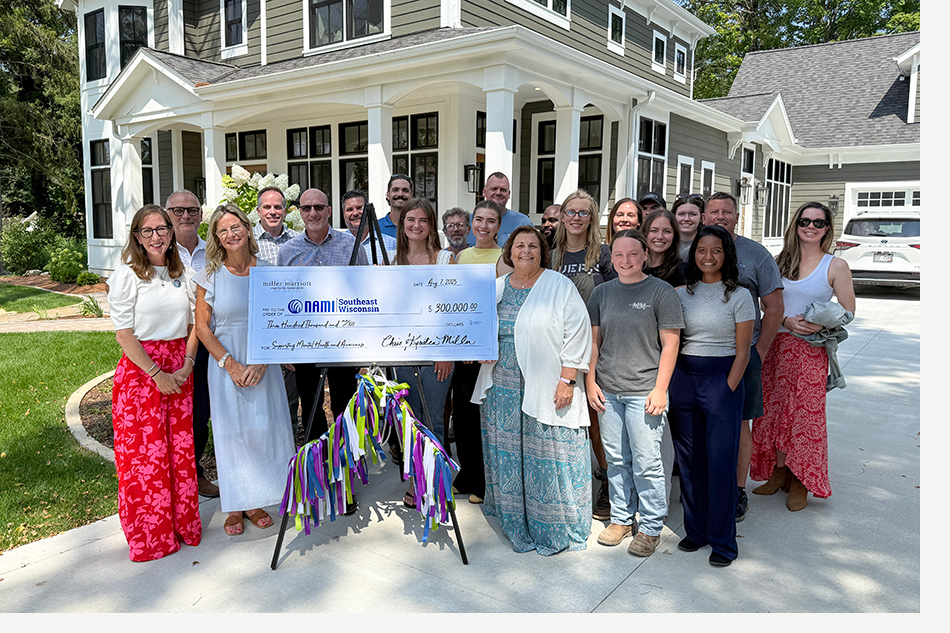
“Now that the house is sold, we can start thinking about the next project,” Kirsten says. “We don’t necessarily know exactly what it’s going to look like, but as of right now, I cannot think of a better way to donate and make an impact than NAMI and mental health.”
Indeed, the charity home project even inspired Chris and Kirsten to put more of a focus on mental health at their own company. A mindset coach now regularly visits the office to work with Miller Marriott’s in-house team, coaching them on how to employ the benefits of a positive mental approach during stressful situations, managing complex opportunities, and finding healthy ways to communicate, manage conflict, receive feedback, and set boundaries.
“I know I’ve enjoyed it,” Schmidt says. “It’s been very impactful for everyone here.”
Looking back at their entire journey of becoming more involved in the mental health space and building the charity home, both Chris and Kirsten describe the experience in one word: humbling.
“I just didn’t fully understand the breadth and depth across all of society that mental health has an impact on,” Chris says.
“Sometimes people don’t know that there are resources out there. And if you are aware of what help is available, then you can help somebody else,” Kirsten adds. “I tell people at every charity home event, ‘Mental health does not discriminate, and if all you do is leave here and talk about what you learned, you will reduce the stigma and make a difference in your community.’ It’s amazing what a community can do if it’s inspired and connected.”
A special thank you to Nicole Meyer for highlighting our efforts in this article from Pros Reps Mind and Body Magazine.
A Community Effort
We recognize the sizable effort it took to build the Charity Home, and we could not have done it alone. We are honored to have these local businesses, suppliers, contractors, and vendors join us in a meaningful partnership to make our mission a reality.
Able Kitchen | Bath
Kohler Company
Accetta Millwork, Inc.
Advanced Window & Door Solutions
Anne Frentzel Interiors
Amerhart/PWT
Appliance Gallery
Beaudry Services Inc.
Best Glass & Mirror, LLC
BTL Contractors
Builders Insulation
Built 2 Last LLC
Carini Electric LLC
CJ Painting
Closet Concepts (storage solutions)
Creative Earthscapes
Dave Perry Heating & Cooling
Digitek
East Side Lumber
Eckhart Drywall
Elektra Lights & Fans, Inc.
The Fire Place Ltd.
FloorQuest
Gallitz Grading, Inc.
Geis Building Products
Guthrie & Frey – Water Conditioning
Guthrie & Frey – Well Pump
Hillmann Masonry Inc.
Jeff Priem Services, LLC
Joe’s Plumbing
KG Stevens
Lauber Lawn and Tree Service
LP (Siding)
Loom House
Neu’s Hardware
Platinum Contractors LLC
Preferred Building Supply
Richco Structures
Riedel Exteriors
RS Flooring LLC
Sam’s Well Drilling, Inc.
Scenic Concrete and Construction LLC
Sherwin Williams
Sierra Pacific Windows
Sister Bay Furniture Co. (A Prestwick Company)
Spruce CPA
Stahl Builders, LLC
Subzero/Wolf/Cove
Talking Walls
Tollefsen Steel
Trio Engineering, LLC
Tyvek
Valley Cabinet, Inc.
Town Bank/Wintrust
Wisconsin Home Improvement
Zignego Ready Mix

